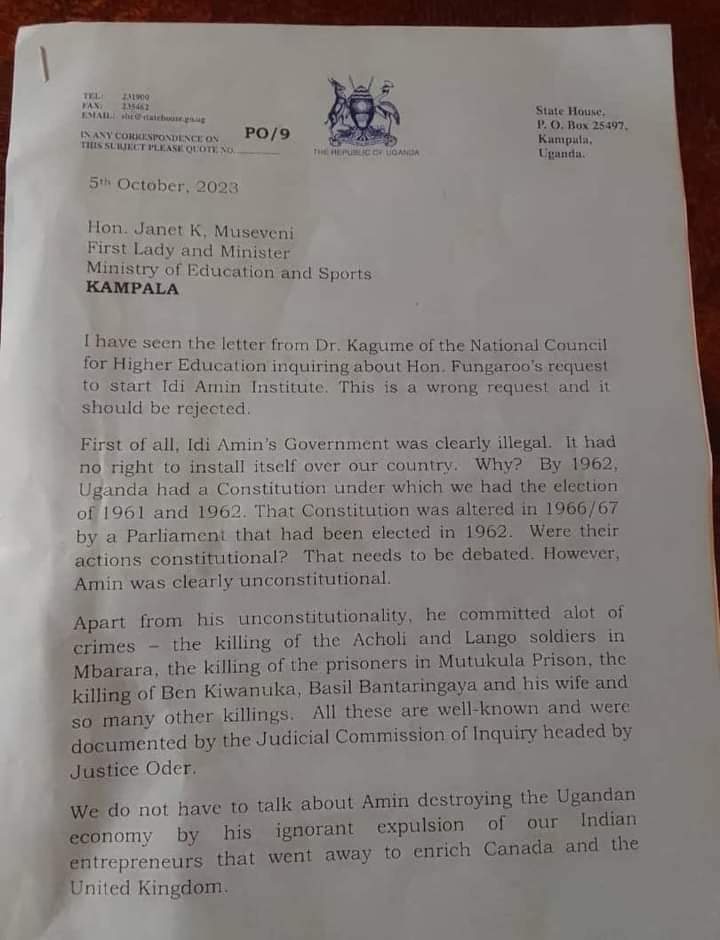President Museveni Opposes Establishment of Idi Amin Institute: A Controversial Debate in Ugandan History
In a recent development, President Yoweri Museveni of Uganda has staunchly voiced his opposition to the idea of establishing an institute aimed at promoting or studying the work of the notorious former President Idi Amin Dada. This move comes as a response to a request made by Kaps Fungaroo, the former Obongi West MP, to license an institution dedicated to celebrating the legacy of Idi Amin.
Fungaroo's appeal found its way to the desk of the First Lady and Minister of Education, Janet Kataha Museveni, with a plea for the Ministry's consideration in establishing an institute in memory of Amin. However, President Museveni has categorically rejected this proposal, citing the illegal and unconstitutional nature of Amin's government.
The President has been resolute in reminding the public of the numerous atrocities associated with Amin's regime. This includes the killing of Acholi and Lango soldiers in Mbarara, the massacre of prisoners in Mutukula prison, and the notorious executions of individuals like Ben Kiwanuka and Basil Bataringaya. Moreover, Museveni highlighted the economic turmoil brought about by Amin's expulsion of Indian entrepreneurs, which led to the enrichment of other countries such as Canada and the United Kingdom.
Museveni's stance on the matter is firm. He asserts that it is unacceptable to establish an institute to promote or study the work of Idi Amin. He called upon Ugandans to reflect on the forgiveness they have extended to surviving associates of Amin, emphasizing that it is time for this painful chapter of history to be forgotten.
The President's position on this matter has ignited a contentious debate in Ugandan society. Supporters of the institute argue that it could serve as a platform for understanding and learning from the nation's troubled past. Opponents, echoing Museveni's views, emphasize the need to move forward and focus on a more promising future, acknowledging the pain and suffering inflicted during Amin's rule.


As this debate unfolds, the legacy of Idi Amin remains a deeply divisive and emotionally charged topic in Uganda. It is a reminder of the complexities of dealing with a history marked by both brutal oppression and the capacity for forgiveness and healing. The decision regarding the establishment of an institute to commemorate Idi Amin's work will undoubtedly continue to stir public discourse in Uganda for some time to come.
BY: Our Reporter- Dailywestnile.info